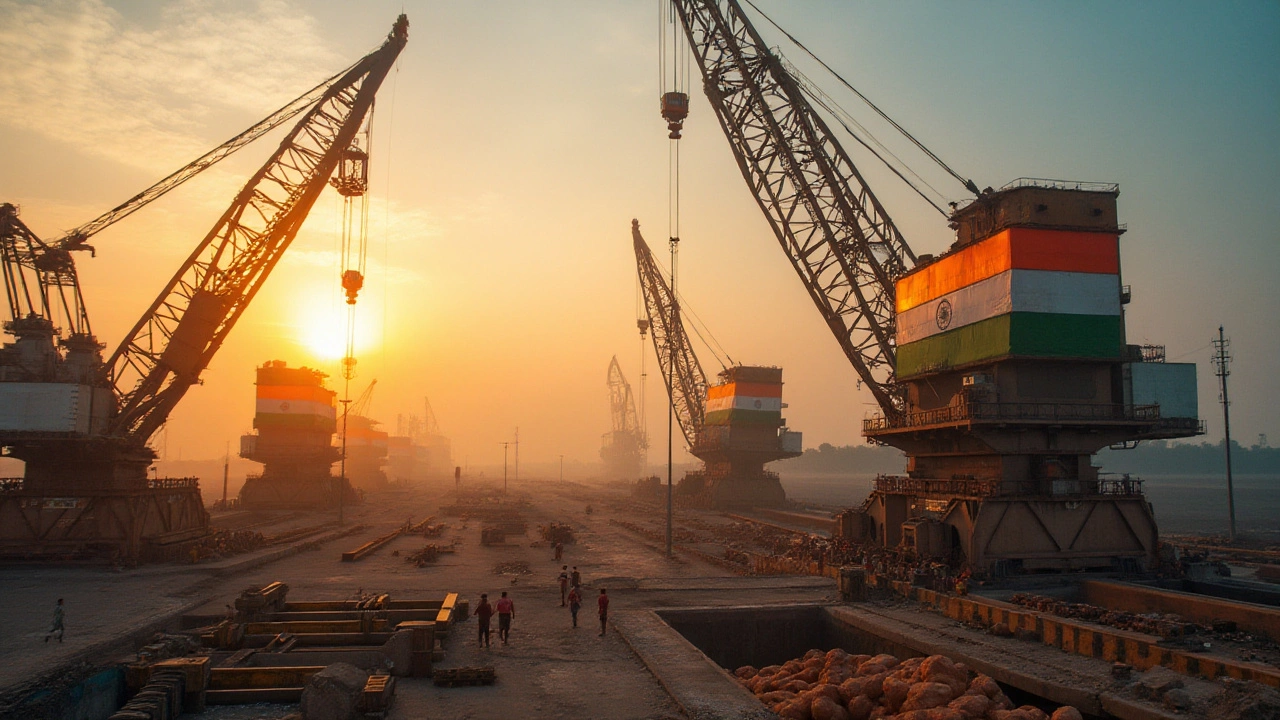Machinery Manufacturers: What They Do and Why They Matter
When you think about any product—from a smartphone to a car—you’re looking at a chain of machines that shaped it. Those machines don’t appear by magic; they’re built by machinery manufacturers who specialize in creating the tools that power factories, workshops, and even small‑scale labs.
At its core, a machinery manufacturer designs, engineers, and assembles equipment that helps other businesses produce goods faster, safer, and cheaper. Whether it’s a CNC mill for metal parts, a packaging line for food items, or a robotic arm for assembly, the maker behind the machine decides its speed, precision, and durability.
Key Trends Shaping the Industry in 2025
Automation is no longer a buzzword—it’s the baseline. More manufacturers are integrating IoT sensors, AI‑driven predictive maintenance, and modular designs that let you upgrade parts without replacing the whole system. This shift means lower downtime and better energy efficiency.
Another big trend is sustainability. Clients now demand machines that use less electricity, generate minimal waste, and are built from recyclable materials. Companies that can prove a lower carbon footprint are winning contracts faster.
Finally, globalization is opening up new markets. Indian and Southeast Asian manufacturers are stepping up, offering competitive pricing and quick delivery times. This creates more choices but also pushes traditional players to innovate.
How to Pick the Right Machinery Manufacturer
Start by defining what you actually need. List the product specs, expected output, and space constraints. A clear brief helps you filter manufacturers who specialize in your sector.
Check their track record. Look for case studies, client testimonials, and after‑sales support. A manufacturer that offers on‑site training, spare‑part availability, and rapid service calls will save you headaches later.
Don’t ignore the financial side. Compare total cost of ownership—not just the purchase price. Factor in energy consumption, maintenance intervals, and potential upgrades. Sometimes a higher upfront cost pays off in lower operating expenses.
Ask about customization. Off‑the‑shelf machines can work, but a tailored solution often yields better efficiency. Good manufacturers will work with you on design tweaks and software integration.
Lastly, evaluate their compliance with standards. ISO 9001 certification, CE marking, and industry‑specific approvals (like FDA for food equipment) ensure quality and legal safety.
By keeping these pointers in mind, you’ll avoid common pitfalls and find a partner who can grow with your business.
Machinery manufacturers are the silent engines behind most modern production lines. Understanding their role, staying on top of emerging trends, and asking the right questions can dramatically improve your operations. Ready to upgrade your equipment? Start with a clear requirement list, vet the providers thoroughly, and focus on long‑term value over short‑term price.
Discover the Largest Machine Made in India: An Industrial Marvel
India has made remarkable strides in manufacturing, with the creation of some of the world's largest and most impressive machinery. From colossal cranes to expansive power plants, these engineering marvels are a testament to India's capability and ingenuity. The largest machine constructed in India not only highlights the country's industrial growth but also its commitment to supporting various sectors with advanced technology. This piece delves into the story behind this impressive machinery, examining its impact and significance.
